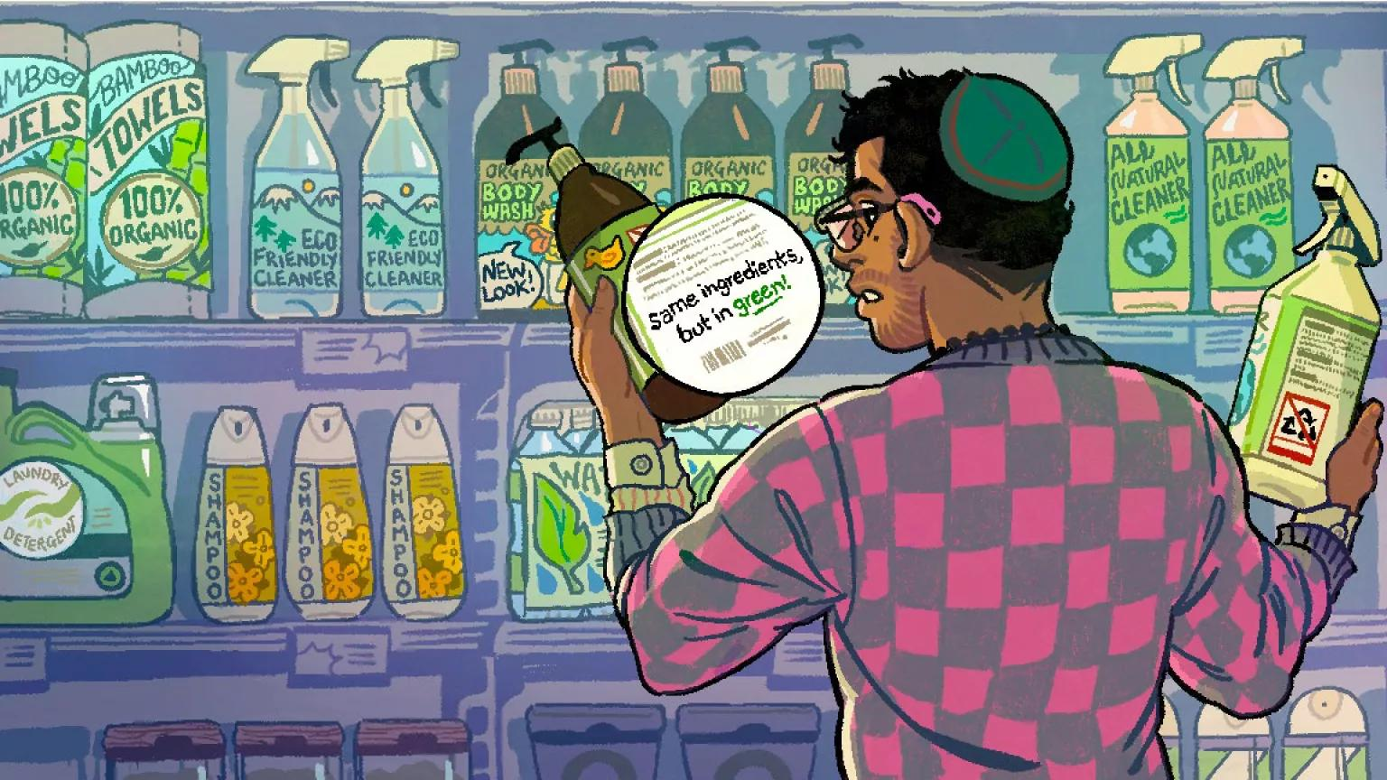
In today’s world, being “green” is more than just a trend—it’s practically a requirement. From city-wide recycling programs to flashy “sustainable” products, urban eco initiatives are popping up faster than you can say “carbon footprint.” But here’s the kicker: not everything labeled as eco-friendly is as green as it claims to be. Welcome to the world of greenwashing, where marketing spin often trumps genuine sustainability. So, how do you spot the difference between a truly green initiative and one that’s just riding the eco-friendly bandwagon? Let’s dive in.
The Greenwashing Trap: When “Eco” Is Just For Show
Let’s start with a bit of real talk about greenwashing. You know the type—those companies that slap a leafy logo and the word ‘natural’ on their packaging and suddenly claim they’re saving the planet. Greenwashing is when businesses or organizations make themselves appear more environmentally friendly than they actually are. It’s like ordering a salad because you want to be healthy, only to find it’s drenched in creamy dressing and topped with bacon bits. Sure, it has lettuce, but let’s be honest—it’s not exactly the health kick you were aiming for. At releaf.co.uk, we believe in transparency and truly sustainable practices, so you can trust that our commitment to the environment goes beyond just the packaging.
In urban environments, greenwashing can take many forms. Maybe it’s a new park built on land that was cleared of its natural habitat, or a public transit system labeled “sustainable” despite being powered by non-renewable energy sources. These initiatives might look great on the surface, but dig a little deeper, and you’ll find they’re more about good PR than good environmental practices.
The Signs Of Greenwashing: How To Spot A Faux Eco Initiative
So, how can you tell if an eco initiative is the real deal or just greenwashing in disguise? Here are a few red flags to watch out for:
Vague Claims And Buzzwords
If you see phrases like “eco-friendly,” “green,” or “sustainable” without any specifics to back them up, that’s a red flag. Genuine sustainability initiatives are transparent about what they’re doing and how they’re doing it, especially when it comes to the energy transition. They’ll provide details about the materials they use, their energy sources, and their environmental impact. If all you’re getting is a buzzword buffet, it’s time to dig deeper.
Lack Of Third-Party Certifications
Third-party certifications like LEED, Fair Trade, and Energy Star aren’t just stickers—they’re proof that an initiative has met strict environmental standards. If an urban eco initiative lacks these certifications, or if the certifications they do have seem questionable (we’re looking at you, self-awarded “eco” labels), it might be a case of greenwashing.
The “Too Good To Be True” Factor
If an initiative’s environmental claims seem too good to be true, they probably are. A public park that claims to be 100% carbon neutral but doesn’t explain how? A new building that promises to be zero waste without detailing its waste management practices? These are signs that you’re being sold a fantasy, not a fact.
Genuine Sustainability: What It Looks Like And Why It Matters
Now that we’ve covered the warning signs, let’s talk about what genuine sustainability looks like. Authentic eco initiatives go beyond the buzzwords and take a holistic approach to environmental responsibility. They’re not just about looking green—they’re about being green, from the ground up.
Transparency And Accountability
Real sustainability initiatives are transparent about their practices. They’ll provide clear, detailed information about how they’re reducing their environmental impact, and they’ll back up their claims with data. Accountability is also key—these initiatives often have measurable goals and report on their progress regularly.
Long-Term Commitment
Sustainability isn’t a one-time project; it’s an ongoing commitment. Genuine eco initiatives aren’t just about launching a new park or building—they’re about maintaining and improving those projects over time. This means considering the long-term environmental impact, from maintenance practices to future expansions.
Community Engagement
Real sustainability involves the community. Whether it’s through educational programs, volunteer opportunities, or public consultations, genuine eco initiatives work to engage local residents and get them involved in the process. After all, sustainability is a team effort.
Releaf: A Commitment To Genuine Sustainability
When it comes to separating the greenwashing from the real deal, Releaf stands out as a brand committed to genuine sustainability. They’re not just putting a green label on their products—they’re taking a comprehensive approach to environmental responsibility. From using ethically sourced materials to ensuring their products are fully recyclable, Releaf is leading by example in the wellness industry.
But Releaf’s commitment goes beyond their products. They’re also dedicated to transparency, providing detailed information about their sourcing and production processes so you can feel confident in your choices. It’s this level of accountability and long-term thinking that sets them apart from companies that are just paying lip service to sustainability.
How To Support Genuine Urban Eco Initiatives
So, how can you support genuine sustainability in your own city? Start by asking questions. Don’t be afraid to dig into the details of an initiative’s environmental claims. Look for transparency, third-party certifications, and long-term commitments. And when in doubt, support authentic brands and organizations like Releaf that have a proven track record of doing the right thing.
By choosing to support authentic eco initiatives, you’re not just making a difference for the environment—you’re helping to set a new standard for what sustainability should look like in the urban landscape. Ready to make a change? Explore Releaf’s commitment to sustainability at https://releaf.co.uk/ and join the movement towards a greener future.
Because when it comes to saving the planet, we can’t afford to settle for anything less than the real deal.





